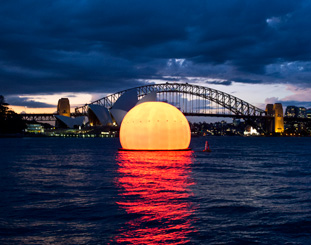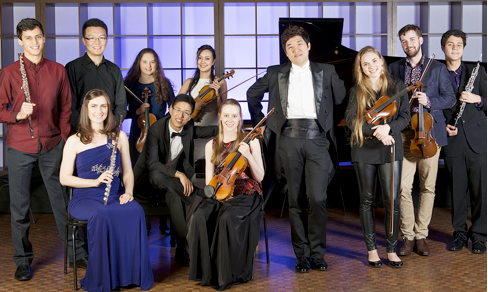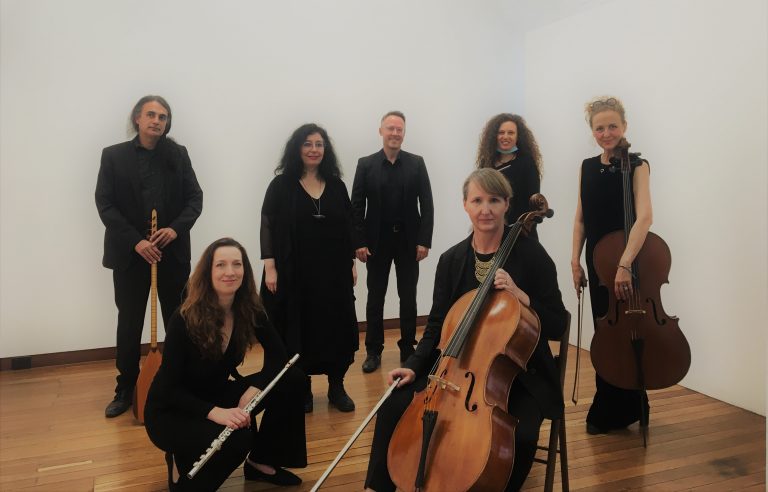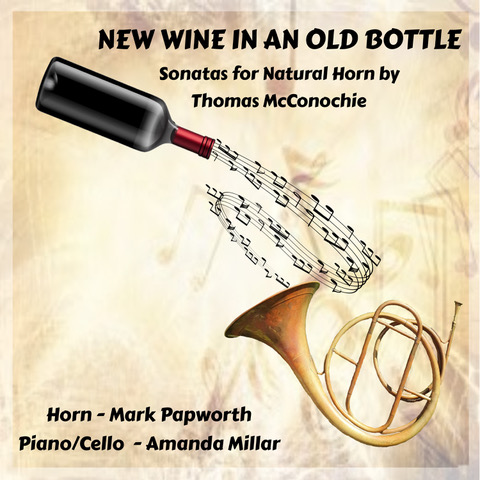Generation and Regeneration: William Christie In Conversation

For William Christie, it seems that the music of the past will never have a ‘use by’ date. Talking to SoundsLikeSydney from Paris, the softly spoken American born harpsichordist and conductor is soon to tour to Sydney with Les Arts Florissants, the ensemble he established in 1979, along with six emerging singers, Le Jardin des Voix. Their concert programme, Un jardin à l’Italienne (In an Italian Garden) is a semi-staged production of rare Italian arias and madrigals from the 16th to 18th centuries with works by Vivaldi, Handel, Stradella, Cimarosa, Porpora and others.
Christie has played a pivotal role in the scholarly revival of French Baroque music through performance, education and over one hundred recordings. Today, Les Arts Florissants is one of the finest Baroque ensembles in the world.
It is hard to believe therefore, that when Christie began his career in Paris in 1971, the genre was all but obsolete. To place it in an antipodean context, the music of the French Baroque was half a world away and at its zenith long before Europeans even landed here. Christie asserts that despite the profusion of research into music written in the 17th and the 18th centuries, there is still plenty more to come to light. He points out that for young musicians, this repertoire is new, active and very much a part of their studies and so, this music is immortal.
Ironically, he observes that it is the very efforts of scholars that have perhaps allowed a relaxation of the drive to champion Baroque music. He says cautiously, “I think there may be a slowing down in the sense that there has been an awful lot done in terms of getting this music out to the public. The ‘missionary’ work is really no longer necessary because people recognise the value of this music. Now, concert halls and opera houses don’t really need convincing – they recognise the music of Rameau and Lully and Gluck – this is repertory that is here to stay and I think that conservatories have woken up to the fact that they can’t ignore this repertory, either vocal or instrumental”.
Born in Buffalo, New York in 1944, William Christie studied Art History at Harvard University. However, it was the study of the harpsichord and organ with which he continued when he left Harvard for Yale University where he studied with Ralph Kirkpatrick. On moving to Paris, he first worked as a harpsichordist with musicians who included Judith Nelson and René Jacobs. Then in 1979 came the formation of the ensemble which has been his life’s work – Les Arts Florissants, named after an entertaining, allegorical ‘operatic divertissement’ by Marc – Antoine Charpentier, themed on fantasies around the arts and other pleasures.
Joining the 23 strong instrumental ensemble on this tour to Sydney is Le Jardin des Voix, the assemblage of six singers handpicked from around the world to participate in Les Arts Florissants’ academy for young singers which runs over two weeks at the Théâtre de Caen in north-west France. After this internship, the singers join the orchestra on tour performing in major houses internationally.
Asked what Sydney audiences can expect from Les Arts Florissants and Les Jardin des Voix, Christie says “Audiences can expect to hear six extraordinary young voices who are at the very beginning of their careers. We’ve selected them from amongst several hundred others and they are participating in a programme both individually and also collectively which I think is immensely engaging and extremely communicative.” He continues ” The programme starts in the early part of the 17th century. It’s all Italian music and goes up to essentially, the time of Rossini – there’s an awful lot of very good music and music that is varied and extremely communicative.”
The singers, Lucía Martín-Cartón, Lea Desandre, Carlo Vistoli, Nicholas Scott, Renato Dolcini and John Taylor Ward represent all voice types – even a counter tenor – and are drawn from Spain, France, Italy, the US and the UK. These are the young bloods who at every generation discover ‘old’ music anew, succumbing to the unique attractions of Baroque music. Christie explains why: “An essential part of Baroque music is that all Baroque music needs the intervention of the performer far more than a piece of music by Tchaikovsky or Boulez. When people make careers in playing Beethoven of Mozart – because these composers have strong personalities, they can be differentiated one from another. But when it comes to earlier music, the individual becomes far more important, which means that performance practice is far more volatile and changing in my repertory than in later repertory.”
Christie’s accent is undeniably east-coast American, but is infused with a subtle Gallic nasality – like the aesthetics that have influenced his work. His interpretation of the English masters like Purcell and Handel have a French twist. Although his first point of reference was the music of Charpentier, Christie and his troupe soon broadened their repertoire, performing works by Lully, Couperin, Rameau and beyond French composers to Monteverdi, Rossi, Scarlatti and Mozart. From there, the repertoire, as well as Christie’s professional engagements grew. Amongst them, a performance of King Arthur for Purcell’s tercentenary; conducting a Peter Sellars staging of Rodelinda at Glyndebourne in 1998; and directing there again in 2013, a production of Hippolyte et Aricie. In the 1990s Christie conducted a series of recordings and performances of Mozart’s operas to high acclaim, described by critics as “bringing to them his usual refinement of style and care for detail, obtained through his cool, undemonstrative but precise conducting technique.”
In 2012, Christie conducted the opera The Enchanted Isle at the Metropolitan Opera in New York. A milestone in Baroque music, it is essentially a ‘mash-up’ of forgotten Baroque works, some over 300 years old, compiled by British director, composer and librettist Jeremy Sams. I asked William Christie if there is a role for more composite works like The Enchanted Isle in ensuring that recondite Baroque gems continue to be performed and heard?
Christie agrees. “That was a pasticcio – a mixed bag of pieces of different composers and it was great fun. That kind of thing will continue. The most important thing is that it’s a way of getting this music into these halls like the Met which now has a very interesting outlook on what it probably never even thought about in the repertory 25 years ago.”
Inevitably, the conversation veered to a discussion on funding and the dilemna faced by musicians looking for lifelines that will allow them to continue practicing their art.
“Very simply,” he says, “having less money or finding one’s self with potential sponsors who don’t have the means that they might have had 20, 15 or even 10 years ago, means that you do other repertory. I have had to scale down and recently I took just two singers and a small group of instrumentalists down to South America and we had the most wonderful time. There are great things to be done in this repertory for smaller forces because it essentially goes from chamber music all the way to large scale oratorios and then full scale operas. A few weeks after the Australian tour I’m taking five excellent singers and instrumental players and we’re going to be doing masterworks of French repertory in New York and in California.”
Despite scaling down, Christie is extremely grateful for the funding that continues to flow from both private and public sources. “We still obviously benefit from regional government support in France as well as from national government support, which is saying a great deal because the contiguous countries around France like Holland and England, Belgium and Spain – the cutbacks in terms of government spending on culture have been absolutely ruthless. Some of my colleagues benefited far less than we did – and now find themselves completely adrift. France is cutting down yes – because that ‘s just the global economy, but we still get a significant percentage of our yearly budget from private and public spending and sponsors.”
“The global meltdown and the stagnation have affected what we do – we are more cautious today – the great tours of years gone by when I could take 50-75 people to the US for major concert tour -those are now obviously few and far between. We have some marvellous friends and we have a wonderful public in Australia and the rest of the world – people who listen to our recordings and view our DVDs. We’ve tried for a number of years to come back to Australia and there again there have been problems due to lack of funding. We’re very happy now of course because we’re able to bring a fair number of musicians – orchestral musicians and my six singers to Sydney then Melbourne and then we go off to Perth.”
“We’ve played in the Concert Hall several times before and it’s quite wonderful. We all have very fond memories and we’re terribly excited about getting back to Australia.”
Shamistha de Soysa for SoundsLikeSydney©
Les Arts Florissants and Les Jardin des Voix directed by William Christie perform in the Concert Hall of the Sydney Opera House on Thursday March 12, 2015.






